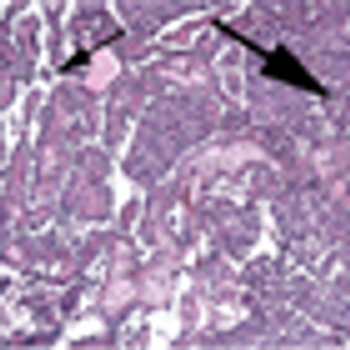
The Cancer Genome Atlas results have led to some encouraging advances in the clinical perspective on squamous cell lung cancer and spurred new initiatives targeting patients with squamous cell lung cancer, giving us hope for future improvements in clinical management and therapeutic outcomes for this subgroup of lung cancer patients.



